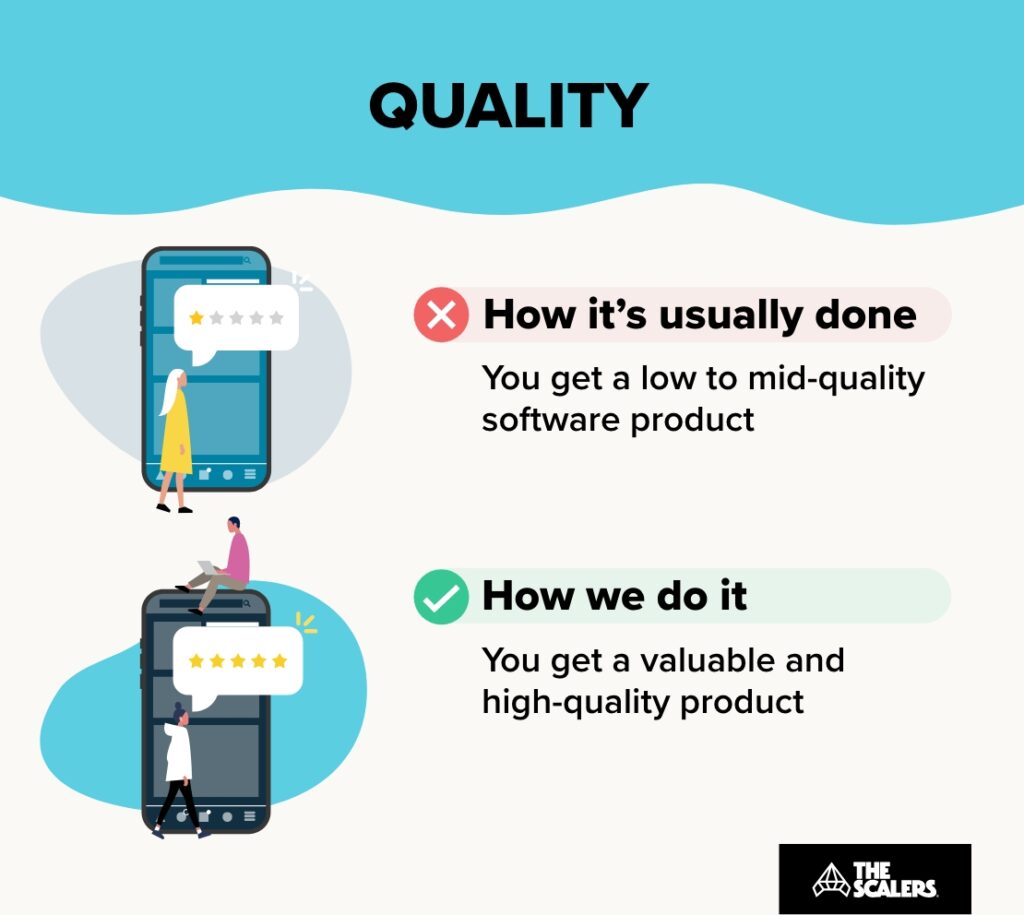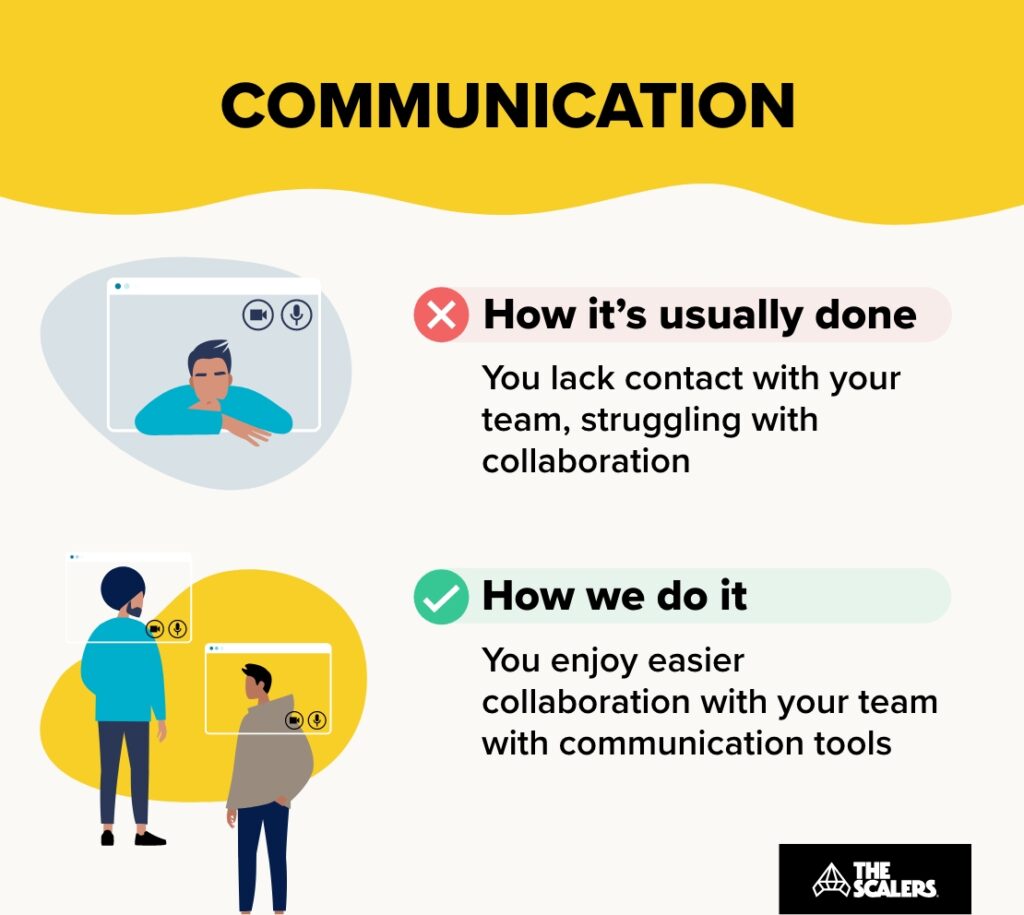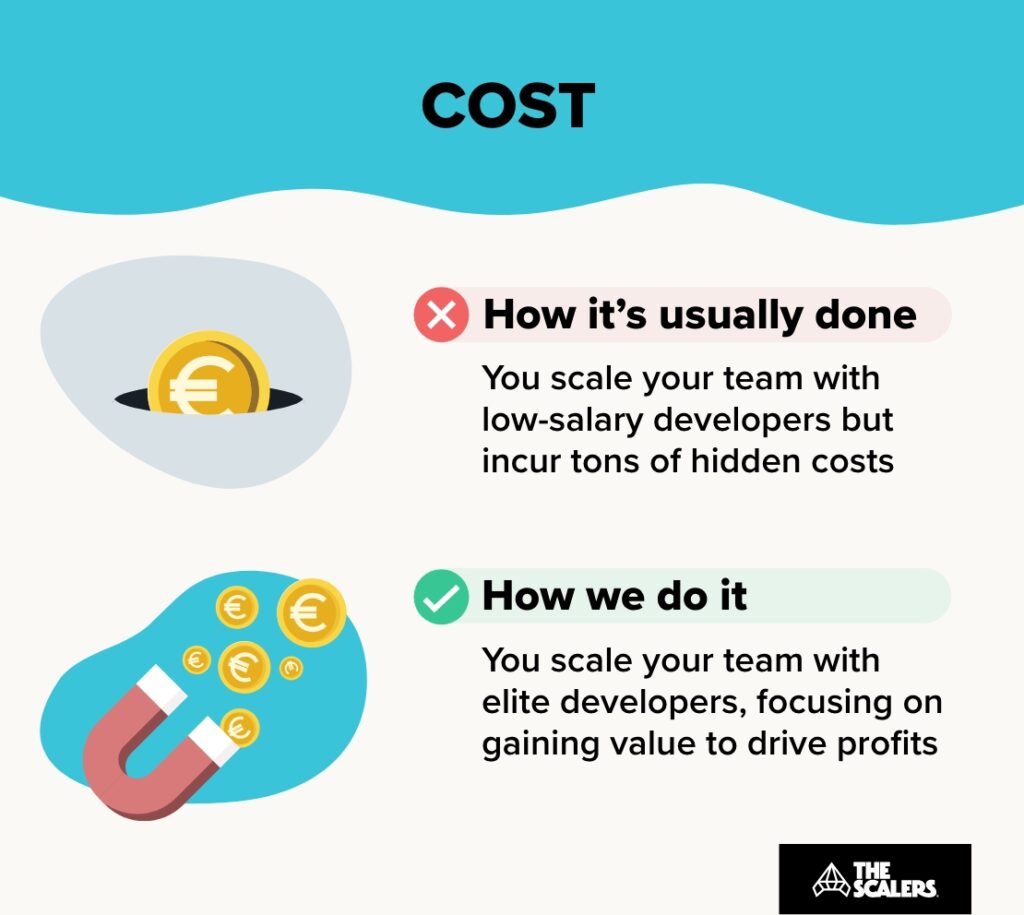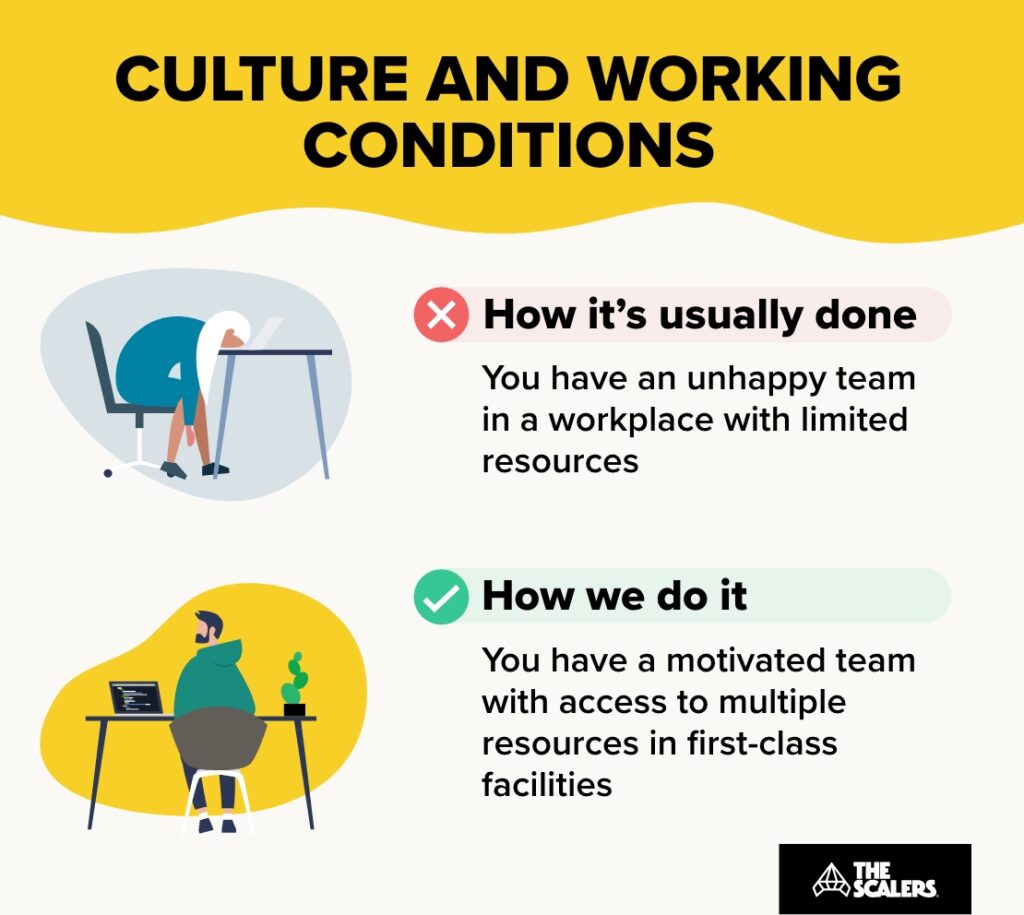Common misconceptions about offshore software development: Part 1

Looking for tech talent worldwide is not an option but a necessity, especially for organisations headquartered in Western countries.
For many, building or extending their current team in tech hubs like Bangalore, India, is an excellent solution to tackle talent shortages in their regions. By offshoring software development, they can hire and work with elite engineers without geographical restrictions.
However, the abundance of offshore companies offering low-quality services has generated misconceptions about offshore software development.
In this article, we’ll discuss the misunderstandings that still prevail around offshoring by comparing its old approach to the modern Offshoring 2.0, which we employ at The Scalers.
Let’s get started!
1. Quality
How it’s usually done
When developing software, quality is everything. Literally.
Let’s say you hire a development team to build a new site or app for your business. If engineers design a product with a poor user interface, potential customers will bounce away.
That’s what’s happening to many organisations in Europe and the US. They go offshore, trusting outsourcing consultancies or subpar offshore partners blindly, and end up with shattered end products.

For instance, one of our partners, Preqin, was working with an outsourcing agency in India and wasn’t happy with the quality of their work and the collaboration between their UK and offshore teams.
It was at that point that they reached out to us.
How we do it
At The Scalers, we embrace Offshoring 2.0.
Our approach is simple: we build dedicated development teams in Bangalore, India, with the best talent the country offers. Our straightforward and transparent offshore model allows you to dive deep into the massive talent pool in Bangalore and pick world-class engineers to be part of your team.


Through a meticulous 7-step interview process that ranges from coding, analytical thinking, personal interviews, and personality tests, we hire nothing but the best for your business.

2. Communication
How it’s usually done
When tech leaders picture Zoom or Skype conversations with developers abroad, they rarely expect flawless vocabulary and impeccable grammar.
Instead, they anticipate conversations with awkward pauses, broken English, and frequent “I don’t understand what you mean.”
And they may be right. If you decide to offshore software development, you can encounter engineers who aren’t fluent in English and with whom communication is a nightmare.
But that’s not always the case. At least, not at The Scalers.

Your crash course on everything offshoring. What is it? How does it work? Is it for you?
DOWNLOAD EBOOKHow we do it
You can find excellent communication skills (almost) anywhere if you know where and how to look.
And in a country like India, where we source our partners’ developers, that isn’t a difficult task.
India is the world’s second-largest English-speaking country, with over 125 million people fluent in the language. That’s second to the US, and the number is expected to quadruple in the next decade.
Top Indian talent isn’t only proficient in programming languages but also in English and communication skills.
Plus, today, there are plenty of tools that make global collaboration easier than ever, such as video conferencing, instant messaging and project management software.


So, the next time you worry about communication barriers when working with offshore teams, think again!

3. Cost
How it’s usually done
Most offshore companies focus on outbidding their competition by providing the most attractive price, but the trade-off is often a compromise in quality.
Very low price = very low quality.
And not to mention the hidden costs. If you partner with the wrong offshore company, you may see yourself hiring a developer with an X salary but end up paying X+Y.
This additional cost arises from hidden charges, including hardware, internet connection, office space, lunch, coffee, and air conditioning. Ultimately, the developer doesn’t turn out to be as affordable as initially thought.

But not all vendors operate that way.
How we do it
The key to avoiding situations like the one HMRC faced is finding a partner who values transparency and is willing to guide you through all the financial aspects.
At The Scalers, we believe in incorporating financial transparency into our contracts so you have a clear breakdown of your expenses. With us, you’ll always know what you’re paying for.
What’s more, we focus on delivering a cost-effective solution, not on providing the cheapest offer.
Our approach is built on providing your business with exceptional value for the money you invest. It’s about more than just hiring top-notch developers and handling administrative tasks in Bangalore: it’s about equipping you with assets that can take your business to new heights.
That’s why every one of our clients has successfully doubled their software development team with us.

4. Working conditions and culture
How it’s usually done
When discussing the most common misconceptions about offshore software development, working conditions and culture are some of the first topics that come to the table.
The stigma around labour and cultural alignment in popular offshoring destinations like India is enough to give rise to many false beliefs.
The reality is that outsourcing agencies and offshore companies that work with developers on a contract basis don’t prioritise these aspects. After all, it’s only a matter of weeks before they get assigned to a different project. So, why bother creating the perfect work environment and fostering a healthy corporate culture?

Increase innovation and deliver at speed in the Silicon Valley of Asia
LEARN MOREHow we do it
At The Scalers, we embrace a people-first culture.
Our company culture goes beyond the perks and employee-centric benefits and focuses on offering each employee a voice. It’s based on honest and productive conversations, team-building activities, celebrations, and joy.
We also understand the importance of a healthy work environment. Our partners’ teams operate from a modern workspace in Bangalore — an office with all the latest amenities and the best working conditions.

Are these misconceptions about offshore software development justified?
There are no right or wrong answers to this question.
The reality is that past mistakes have led to a perception problem in the offshore software development industry, with some companies (still) offering low-quality services. It’s uncertain if that negative perception will ever change.

How we helped a fintech establish a dedicated development centre in Bangalore
DOWNLOAD CASE STUDYHowever, organisations and tech leaders are witnessing a new wave of offshoring. Companies like The Scalers now leverage Offshoring 2.0 to build dedicated, high-quality, and culturally aligned tech teams.
Do you want to build or extend your current software development with world-class Indian developers?
Fill out our contact form, and one of our senior executives will be in touch with you shortly to explain to you how we can help you scale your operations in Bangalore, The Silicon Valley of Asia!















